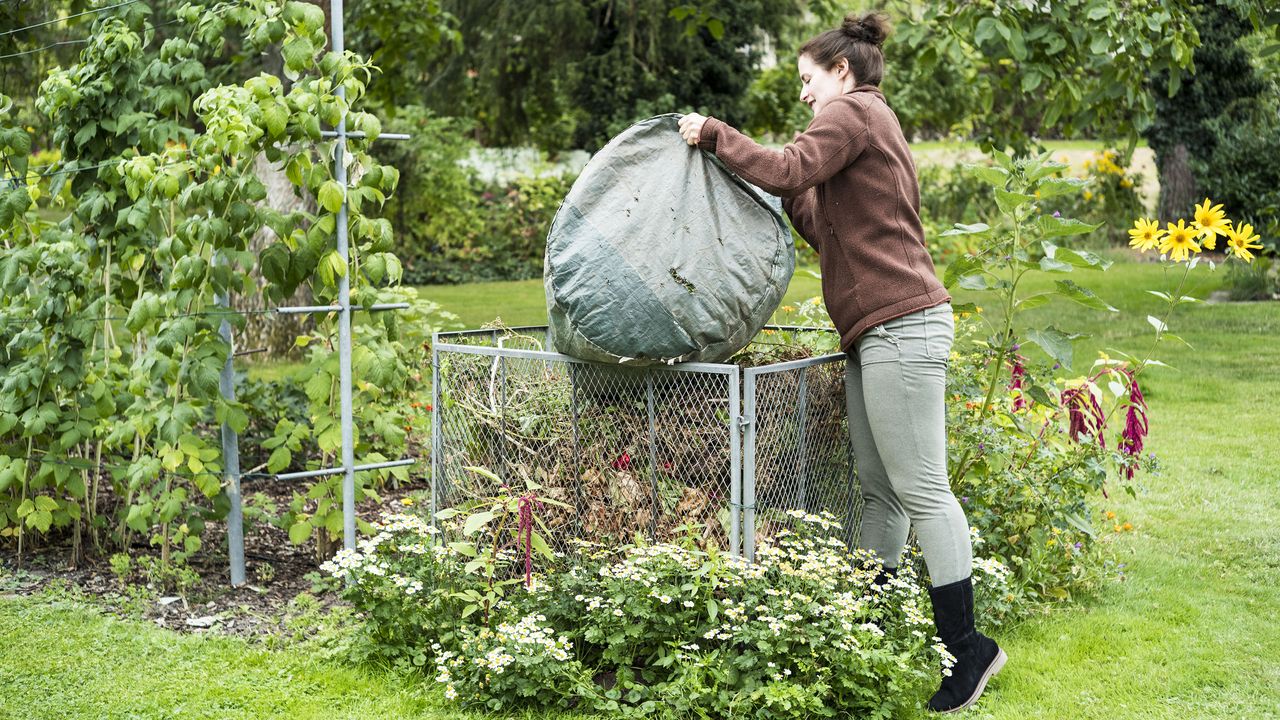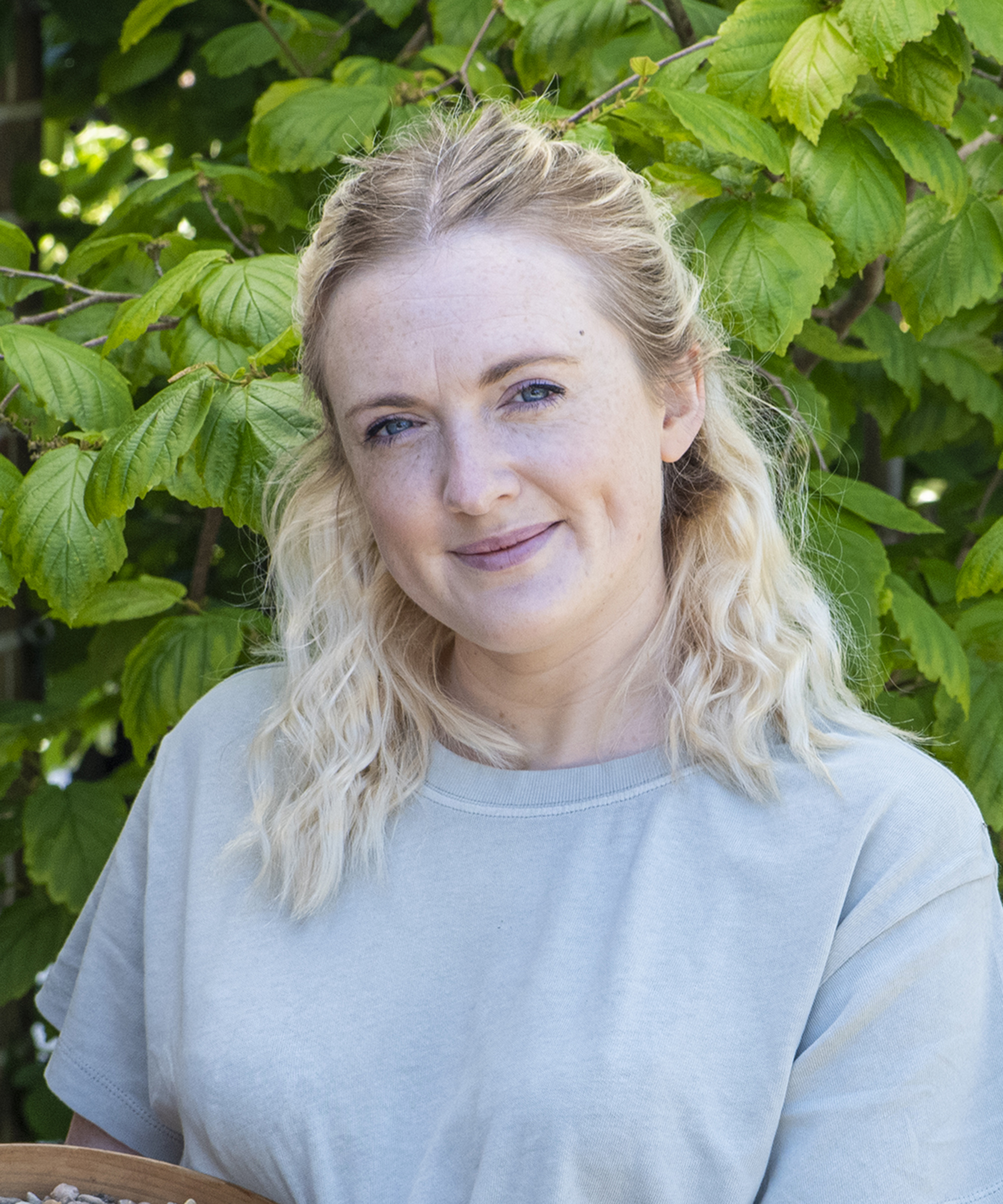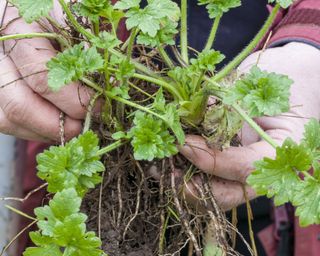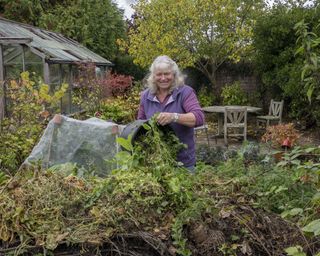Can you compost weeds? Garden expert explains what you can and can't do
Ever wondered about composting weeds? Follow these dos and don'ts from an expert to keep your home-made compost healthy


Should you be composting weeds or discarding them? If you're working hard to save money in the garden, then making your own compost might already be on your list. But knowing what weeds you can and can't add to the pile is important for the health of your compost.
For instance, there are certain weeds which should be avoided altogether as they'll develop roots and regenerate, rendering your compost completely unusable. Some varieties will just need certain pieces removed before throwing on the heap.
Try to manage your expectations of homemade composting. It works well anywhere and is completely free. But is unlikely to be entirely weed free, so you'll have to continue to monitor your beds for weeds.
Bagged multi-purpose compost from the garden center is the alternative as it’s weed-free, but it will work out to be expensive. In the spring of 2022, a survey by the RHS found that only a third of gardeners composted garden or food waste. This means two thirds are missing a fun and rewarding trick.
Horticulturalist Anne Swithinbank takes us through what you can and can't do when it comes to composting weeds, so you don't miss out on useful green waste.

Anne has been a freelance horticulturalist since 1986. She trained at Kew Gardens in London, worked in parks department nurseries and as Glasshouse Supervisor at RHS Wisley. Her early days were a mixture of small landscaping projects, garden maintenance, writing and presenting on Gardeners’ World. She's also been a regular panelist on BBC Radio 4’s Gardeners’ Question Time, and a key contributor to Amateur Gardening magazine, offering advice on everything from composting to the latest flower varieties to choose for your plot.

Creeping buttercups are safe to add to your compost
Top tips for composting weeds
'In many ways, deciding how strict you will be with adding weeds to your compost bin is a personal choice,' says Anne. 'More weeds may grow, but are easy to pull from soil enriched by organic matter. They then go back on the compost heap.'
Your home-made compost can be used for mulching and as a great alternative to expensive, store-bought peat free compost. See below for Anne's must-know advice on composting weeds:
- DON'T add seedheads: Technically, you should not put seeding weeds in compost because the seeds persist, are spread in the mulch, germinate and infest your beds. In an ideal world, gardeners will hoe off or pull all annual weeds before they flower and seed in order to get rid of weeds and stop them from spreading. In practice, I don’t stop to separate the seeding and non-seeding, but put them all on the heap.
- DO add non pernicious weeds: In my experience, these large weeds add good bulk and they rot right down without growing again. Some non-pernicious perennials such as creeping buttercup rot down nicely.
- DON'T add invasive plants: Leave out any part of invasive plants such as comfrey, mint and especially Japanese knotweed or Himalayan balsam, as they will contaminate the whole batch and start to grow in it.
- DO add young sow thistles: Do this before they flower and form their dandelion-clock seedheads. Some are annual and some perennial, but their tap roots all rot well in my heaps.
- DON'T add pernicious weeds: Good examples are ground elder, bindweed and couch grass. Pernicious weeds are perennial types capable of regenerating themselves from tiny sections of underground rhizome or other resting bodies.
- DON'T add oxalis: This is because the pink-flowered type produces tiny bulbils that sprout into new plants. The yellow-flowered one flourishes in poor sandy soil, spreading by runners and seed.
- DON'T add nettles: Those weeds like nettles and docks with wide, woody bases often persist and grow again. But nettles can be used to make fertilizer so don't discard them completely.

Anne adds weeds to her compost heap at her home in Devon, England
- Shop hot composters in the US: view at Amazon
- Shop hot composters in the UK: view at Original Organics
What weeds can you compost?
'The only hard-and-fast rule for composting weeds is excluding pernicious weeds, because only regularly turned and usually large, scientifically monitored heaps are hot enough to kill them,' says Anne Swithinbank expert at Amateur Gardening.
'Don’t add ground elder because only the tiniest section of rhizome will root, produce shoots and start to spread. Once established in a border, it infiltrates other plants and becomes a menace.'

Teresa has worked as an Editor on a number of gardening magazines for three years now. So she is lucky enough to see and write about gardening across all sizes, budgets and abilities. She recently moved into her first home and the garden is a real project! Currently she is relishing planning her own design and planting schemes. What she is most passionate about when it comes to gardening are the positive effects it has on our mental health to grow and care for plants, as well as being great for the environment too and help provide food and shelter for wildlife.
